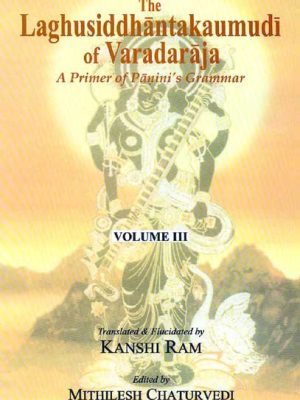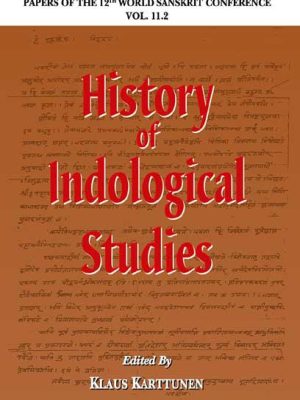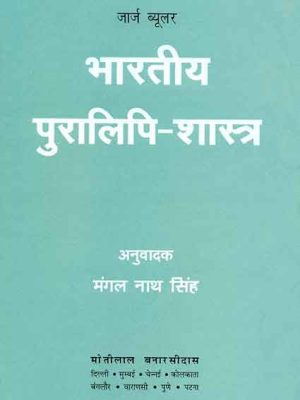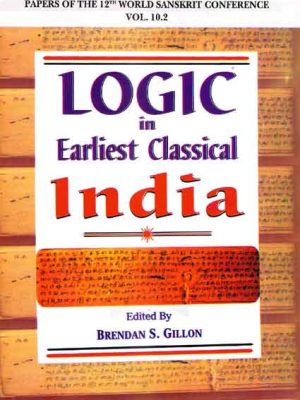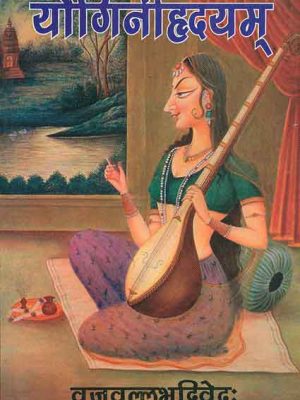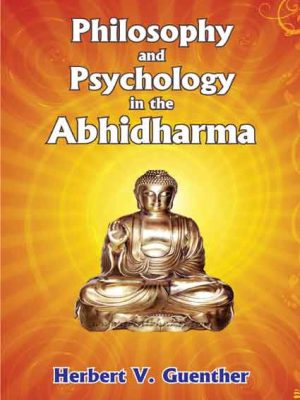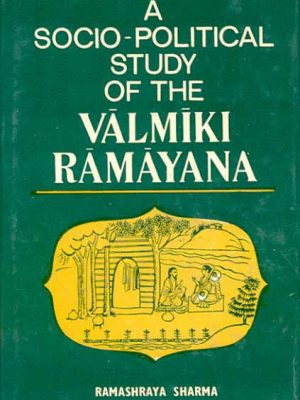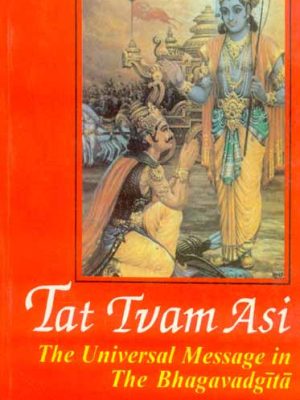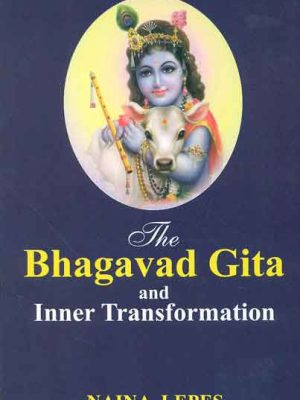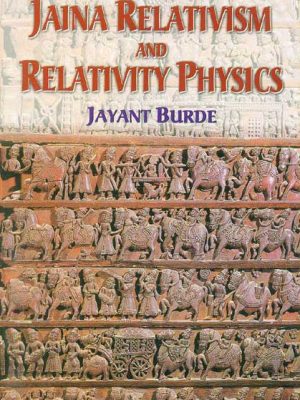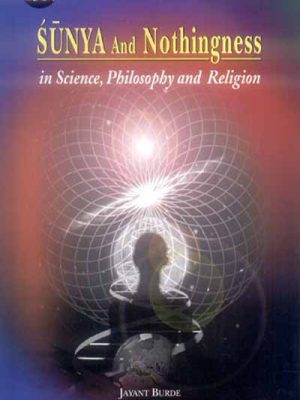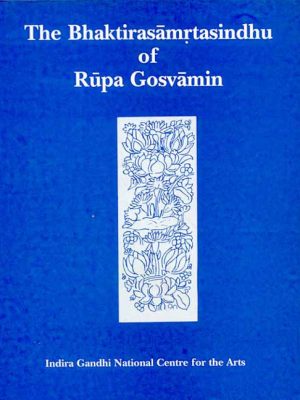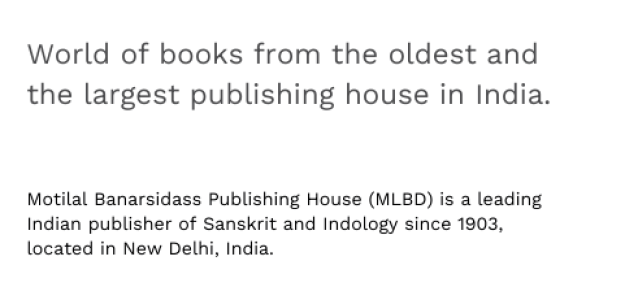
Motilal Banarsidass Publishing House
-
History of Indological Studies: Papers of the 12th World Sanskrit Conference Vol. 11.2
History of Indological studies
The history of Western knowledge of Indian began about 2500 years ago, but the history of Indology only about 230 years ago. It happened in Kolkata, as a fusion of colonial and scholarly interests, but also not uninfluenced by the scholarly traditions of India. In the next 75 years Indological chairs were founded in important universities in most European countries. The present volume contains a general introduction to the history of South Asian studies, a bibliography and six case studies of different aspects, including early Indological studies in India, Indological traditions in Sweden and Denmark, sanskrit studies in Russian cultural history, Ukrainian translations from Sanskrit and the Sanskrit correspondence between the French Indologist Sylvain Levi and the Nepalese scholar Hemaraja Sarma.
₹1,000.00 -
Bharatiya Puralipi-Shastra
Bharatiya Puralipi-Shastra is authored by mangal nath sinh, Geroge bulher.
₹500.00Bharatiya Puralipi-Shastra
₹500.00 -
Logic in Earliest Classical India: Papers of the 12th World Sanskrit Conference held in Helsinki, Finland, 13-18 July 2003 Vol. 10.2
The last two decades of Indological research have led to a marked increase in the investigation of logic in India, especially in the earliest period of classical India. A panel of senior and junior scholars from America, Asia, and Europe, all specialists working in this area, was concerned at the 12th World Sanskrit Conference, held in Helsinki in the summer of 2003. This volume contains not only their papers, which address both philosophical and philological matters pertaining to logic as propounded in texts from this period, but also an introduction designed to permit non-specialists, whether non-Indologists or non-philosophers, to learn about Indian logic in its infancy.
₹750.00 -
-
Tat Tvam Asi (2 Vols.): The Universal Message in The Bhagavadgita
The Bhagavad Gita, a great poem attributed to Rsi Vedavyasa, expounds Vedanta philosophy in the dynamic setting of a battlefield where Lord Krsna reveals the teaching of Vedanta to the warrior prince Arjuna. The essence of the Gita is to make one realise tat tvam asi. We are really the atman or Divinity with an outer covering of the physical body inside which is subtle body consisting of the mind and the intellect. Unfortunately we get attached to the body and develop the ego which is the ‘I’ or ‘My’ -ness in us. It makes us believe that our physical body is real. We forget that we are living because of the life-force inside us. The life-force is the spiritual energy and is known commonly as ‘soul’ or Atman. Tat Tvam Asi is a ‘great Upanisadic sentence’ exhorting us to realise our own divine identity. To realise one’s own divine status, to realise the same divine status in all forms manifest in the universe is to realise the oneness of all beings.
Contents (Vol. 1)
Forword, Message from Swami Hari Har Ji, Note Acknowledgements from the Author, Introduction, Arjuna-Visada-Yoga, Samkhya-Yoga, Karma-Yoga, Jnana-Yoga, Karma-Samnyasa-yoga, Atmasamyama-Yoga, Jnana-Vijnana-Yoga, Rajavidya-Rajaguhya-Yoga, Vibhuti-Yoga.
(Vol. 2)
Visvarupa-Darsana-Yoga, Bhakti-Yoga, Ksetra-Ksetrajna-Yoga, Gunatraya-Vibhaga-Yoga, Purusottama-Prapti-Yoga, Daivasura-Sampad-Vibhaga-Yoga, Sraddhatraya-Vibhaga-Yoga, Moksa-Samnyasa-Yoga.
Review(s)
About the Author(s)
₹1,500.00 -
The Bhagavad Gita and Inner Transformation
This contemporary companion to the Bhagavad Gita addresses the heart of human yearning. It offers the possibility of transforming the battle of life into a path to Truth, a living process. Each chapter presents a road toward our inner, universal Self, bringing a deeper and wider perspective along the way.
A psychological orientation invites the reader to move from abstract idea to individual insight. As the book proceeds, the relationship between the personal and the eternal gradually unfolds in an ever-expanding process of self-discovery.
Quotes from the great teachers are included in the text to inspire, uplift and help us cross over the sea of illusion.
When we can link our heart to that which has been called the first cause, the causeless cause, the way it will carry the momentum of our life toward ultimate fulfillment. This is Krishna’s promise to the person who surrenders his ego to the will of the higher force, be He called Krishna, Christ, Buddha, Yaweh, Self or the Divine Mother.
To live one’s life on the foundation of this secret brings true self-confidence.
For those who worship me alone,
thinking of no “other”
I provide for all they need.
Bhagavad Gita 9:22
Review(s)
About the Author(s)
Naina Lepes is the author of From Maya to Oneness and The Cat Guru. Her teachers are Sai Baba, Swami Chinmayananda and Mother Nature, whereas her formal education includes degrees in music, psychology and counseling.
Formerly, Naina worked as a Jungian-trained psychotherapist in New York, and now lives in the Kumaon region of the Himalayas.
Visit the author’s websites at www.thegitaspace.com and www.catguru.com.
₹695.00
